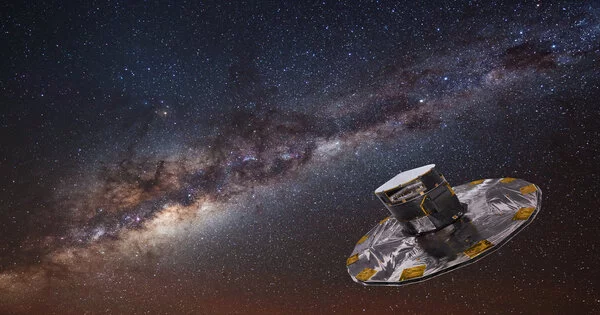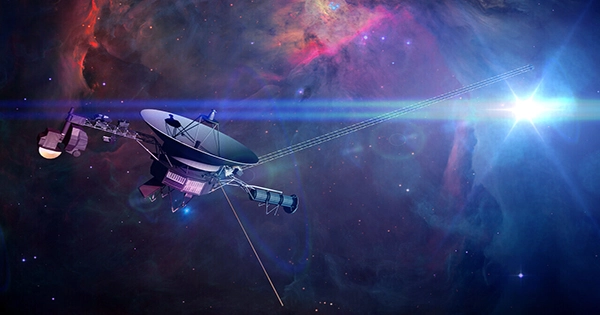The human-made object Voyager 1 is the farthest away from Earth. It is currently over 15 billion miles (24 billion kilometers) from Earth in interstellar space, having passed through Jupiter, Saturn, Uranus, and Neptune. In the form of their Golden Records, both Voyager 1 and its twin, Voyager 2, contain little fragments of mankind. Spoken greetings in 55 languages, sounds and sights from nature, an album of recordings and photos from other civilizations, and a written word of welcome from Jimmy Carter, who was president of the United States at the time the spaceship departed Earth in 1977, are among the messages in a bottle.
The Golden Records were designed to survive a billion years in space, but scientists determined that they may endure billions of years without traveling close to any stars in a recent examination of the courses and dangers these explorers may experience. I’ve spent my career working at the intersection of religion and science, so I’ve given a lot of attention to how spiritual notions interact with scientific advancements. The Voyager spacecraft’s amazing lifetime provides a unique entrance point for examining themes of immortality.

For many individuals, immortality refers to the after-death existence of a soul or spirit. It can also refer to the preservation of one’s memories and documents. Each Voyager leaves such a legacy with its Golden Record, but only if it is discovered and valued by an extraterrestrial civilisation in the far future.
Immortality is a topic on which many religious views exist. Most faiths envision a personal soul’s or spirits postmortem profession, which might range from perpetual residency among the stars to reincarnation. For many Christians and Muslims, the ideal everlasting existence is to spend eternity in God’s presence in heaven or paradise. The teachings of Judaism on what happens after death are less clear. The deceased is described in the Hebrew Bible as “shades” in a shadowy land called Sheol. Some rabbinical leaders believe in the immortality of souls and the resurrection of the pious.
Individual immortality is not possible. It can also be a group effort. For many Jews, the nation of Israel’s or its people’s ultimate fate is of crucial importance. Many Christians believe that those who have died will be resurrected at some point in the future, and that God’s kingdom will come to those who are loyal. Jimmy Carter, a progressive Southern Baptist whose message and autograph are recorded in the Golden Records, is a living example of Christian longing for immortality. He has considered dying as he battles brain cancer and approaches centenarian status.
“It didn’t matter to me whether I died or survived,” Carter said after his diagnosis in a sermon. My Christian religion gives me great assurance that there is life after death. So, once I die, I’m going to live again.” It’s reasonable to assume that the possibility of an extraterrestrial viewing the Golden Record and learning of Carter’s identity billions of years from now would provide only modest additional comfort to him. Carter’s understanding of his final fate reflects his great belief in his soul’s immortality. He most likely symbolizes individuals of many religions in this way.
















